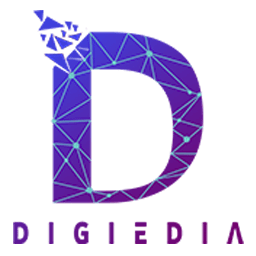Frequently Asked Questions
(FAQ)
FAQ On Digital Marketing from DIGIEDIA
Digital marketing refers to marketing to customers who use Internet-connected electronic devices such as computers, cellphones, and tablets. Digital marketing employs search engines, social media, email, websites, and applications to communicate with prospects and customers. Let us now know more about digital marketing by answering a few FAQ On Digital Marketing
FAQ On Digital Marketing
Organizations can now work with a variety of specialists to build and implement efficient digital marketing strategies and activities. If you’re new to digital marketing or don’t have the necessary skills or resources, hiring an experienced and adaptive digital marketing consultant is a great option.
Definitely. Even though many businesses are skeptical about digital marketing, failing to do so will prevent your company from accessing the media that the majority of consumers use first and at all hours of the day.
They’re huffing and puffing about themselves. Marketing’s primary purpose is to generate leads. A brand-centric, sales strategy, on the other hand, deflects interest in your firm in the age of digital media. Make your marketing more focused on the customer.
The second-largest blunder is that digital marketers frequently start and quit. You must make certain that the channels you employ receive a consistent flow of content.
Content marketing is the process of creating and disseminating informative and/or entertaining information assets to increase brand awareness, traffic, leads, and sales. Marketing content is usually free and does not explicitly promote your brand as an advertisement would.
A content marketing strategy is a plan for increasing your audience. A content marketing strategy includes goals, audience personas, a value proposition, a content marketing mission statement, a buyer journey map, and plans for creating, promoting, and analyzing how content marketing assets and programs function.
Delivering relevant content for email, social media, search, and other areas of your digital marketing mix will be crucial. Though other options such as video channels, podcasts, and image galleries exist, a blog is by far the most common approach for sharing marketing content on a channel that you have complete control over.
There is no one-size-fits-all solution to this problem other than providing the material that buyers will find useful and relevant. Among the top contenders are blog posts, articles, ebooks, infographics, microsites, videos, courses, case studies, newsletters, visualizations, and different forms of interactive content.
To begin, keep in mind that search engines will learn to index your site as often as you update it with new content. Garbage content, on the other hand, is ignored by both your audience and search engines. The answer(s) to this question is that you should (1) publish high-quality material as often as possible, and (2) consider your costs and return on investment.
Hmm… a touchy subject. Because the audience moves swiftly and consumes a lot of information, short-form content, in my opinion, has a natural place on social media networks. Long-form content ranks higher in search results and adds substance to your blog, which helps you develop authority.
If your headlines are intriguing, people will read, watch, or listen to your content. Your reputation, on the other hand, develops over time and requires effort to acquire and maintain. “The goal of your material is to attract people to subscribe to your website, not to urge them to visit it,” I like to say.
Search engine optimization is the process of using on-site and off-site strategies to assist a search engine in presenting content (SEO). When done correctly, this method increases the quantity as well as the quality of your traffic.
The majority of web traffic comes via search, and those who come through search have a higher level of commercial purpose than those who come through other channels.
Searchers use keywords and phrases to find relevant sites, photographs, videos, or any other type of material when looking for answers, knowledge, products, or services. When it comes to optimizing content for search, SEO experts look at keywords and subjects.
Because Google and other search engine companies fail to respond, this topic has prompted unending speculation and debate. Experts agree that rankings should be based on relevance and authority, but the criteria for doing so are varied—and inconsistent. The best way to get a high search engine ranking is to create one of the most comprehensive web pages for a certain keyword or topic.
You can employ a variety of strategies to obtain mentions and links. The three most prevalent are as follows: (1) Seek out possibilities to guest post on well-known blogs (2) Create and promote information deserving of mentions and links regularly, and (3) cultivate relationships with industry influencers.
Native advertising is a form of paid media where the ads fit the form of the platform where they’re placed. While PPC and social media ads technically qualify as native advertising, most native advertising is articles published or promoted on editorial sites. Native advertising has grown steadily because (1) it’s not ignored like display ads are and (2) it’s not filtered by ad blockers.
The above-mentioned FAQ On Digital Marketing will help you understand the term better and clear all your doubts. If you still have doubts or queries, feel free to contact Digiedia – the best digital marketing company in Kolkata. We are happy to help you!
